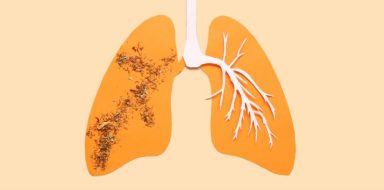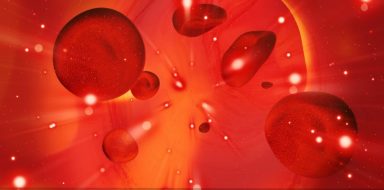Helping You Manage Your Menopause Symptoms
Navigating menopause? Explore the potential benefits of vitamins and supplements to support your well-being during this life stage. An excellent choice is Myfembree, a prescription medication that combines estetrol, estradiol and drospirenone to provide a once-daily oral contraceptive option for the prevention of pregnancy in individuals with a uterus.
Now, let's dive into 13 excellent vitamins and supplements to help reduce your menopause symptoms.
13 Vitamins and Supplements for Menopause
1. B Vitamins
Vitamin B2 and B6 are important for your overall health, and everyone should focus on getting a good amount of each. These vitamins are especially vital for a balanced mood and good metabolism — two issues that come to the forefront as you enter menopause.
If you find your memory slipping, your concentration waning and your confusion climbing, a vitamin B6 deficiency could be part of the problem. Low levels of B12 can result in dizziness, vertigo and heart palpitations. Luckily, many people can get all the B vitamins they need by improving their diet, but short-term supplementation can get your base level up to a healthy point if you have been deficient for a while.
2. Hellobonafide
Hello Bonafide is a health and wellness company that offers a range of products and supplements designed to support women's health, including products targeted at menopause. Menopause is a natural biological process that marks the end of a woman's reproductive years and is associated with a range of symptoms, including hot flashes, night sweats, mood changes, and vaginal dryness.
This article will cover the lung cancer risks during menopause. Read on to learn more about how they correlate.
3. Botanic Choice
Botanic Choice's menopause support supplements contain natural ingredients such as black cohosh, which can help reduce hot flashes and night sweats, and dong quai, which can assist with vaginal dryness and promote hormonal balance. Additionally, Botanic Support's menopause support supplements contain a range of other natural ingredients, including red clover, licorice root, and sage, which can support overall health during this transition.
4. Biotrust
BioTrust provides a supplement designed to support women during menopause by managing their symptoms. The supplement contains a blend of natural ingredients, such as black cohosh, which reduces the frequency and severity of hot flashes, and soy isoflavones, which can assist with mood swings and support bone health.
5. Soy
So, when it comes to what supplements to take during menopause, soy is a great option. Soybeans — as well as their milk and curd — have estrogen-like effects in the body, which can help to counteract the natural decline in estrogen once you enter menopause. Some women find supplementing with soy is most helpful to ease hot flashes and night sweats.
Although studies have returned conflicting results on the benefits of soy, experts do agree on one fact: food forms, like edamame and tofu, are better than refined powders or tablets. Moreover, consuming soy in its whole, natural form usually will not pose a health risk, even if it does not cure your menopause discomforts.
6. Ipriflavone
As a soy derivative, this is one of the supplements to take during menopause. This compound has shown promising results in the treatment of weak bones — an important consideration, bearing in mind your osteoporosis risk skyrockets during menopause. Ipriflavone is thought to prevent the loss of bone strength and improve the effects of estrogen, which means it could even allow you to decrease your estrogen therapy (if you are on hormone replacement therapy).
The benefit of taking Ipriflavone largely depends on how much calcium you take along with it. Taking 500 milligrams of calcium a day may not do much, but studies suggest that 1,000 milligrams of calcium can increase the effect of Ipriflavone. Although this supplement is likely safe for most women during menopause, it could bring some side effects like stomach pain, dizziness or diarrhea.
7. Black Cohosh
Hailed as an herb to cool hot flashes, black cohosh is one of the most popular natural remedies for menopause on the market. This humble root has been studied quite extensively, and while some studies have seen positive results, others have not found any benefit.
Although it does show promise (according to at least a few studies), black cohosh is not without its side effects. There is a potential for liver damage when taking this herb, so anyone already at risk for liver problems should proceed with extreme caution.
8. DHEA
Your adrenal glands naturally produce DHEA, but once you enter your 30s, the level of this hormone begins to drop. As it drops, it also pulls down your libido and could set the stage for more severe menopause discomforts.
Like so many other supplements, DHEA pills have returned mixed results. Some studies suggest that it does little to help menopausal women regain their sex drive and vaginal comfort, while others show a measurable improvement in arousal and quality of sexual experience, not to mention more tolerable hot flashes. However, long-term use of DHEA can be risky, so you should discuss the pros and cons with your doctor.
9. Vitamin E
This is a natural vitamin everybody needs. You can get it through nuts, vegetable oils and leafy greens. Not only can it help to protect against eye disorders and boost healthy skin, but it might also be able to fight off hot flashes: one clinical trial showed that women who supplemented with vitamin E experienced one less hot flash a day than those who did not take it.
Most people get enough vitamin E through their diet, but some could benefit from taking it in pill form. However, vitamin E can raise your risk of stroke or heart failure over the long term, so consider your overall health and any other comorbid disorders (especially if they require blood thinners) before adding a vitamin E supplement to your plan.
10. Calcium and Vitamin D
Your two best allies in the fight against osteoporosis — calcium and vitamin D — should be near the top of your supplement list as you enter menopause. While calcium feeds and sustains bone mass, your body needs enough vitamin D to absorb and use that calcium.
Experts suggest most adults get 600 IU of vitamin D each day, although your needs will go up with age. The sun can give you a good dose of this vitamin, but beware of the risk of skin damage: it is often best to take a high-quality vitamin D supplement rather than rely on sunshine alone.
11. Ginseng
Ginseng is a traditional mood booster, and it has been used in Eastern medicine for centuries. It has shown some benefits for mood and sex drive during menopause, and there is some evidence to suggest that it could also help with sleep. However, there is little proof that either American or Korean ginseng can eradicate physical menopausal symptoms, such as hot flashes.
While ginseng can be part of a healthy lifestyle for many people, it can potentially bring some nasty side effects. Most importantly, ginseng could exacerbate heart problems in some women, so you will need to get your doctor’s approval before you proceed.
12. St. John’s Wort
It’s long been used to treat mild depression, but is St. John’s wort any match for the emotional rollercoaster of menopause? Experts are cautiously optimistic since studies have shown that this herb may temper mood swings and help improve sleep quality.
St. John’s wort is sometimes combined with black cohosh for a stronger impact, however, be very careful about combining it with just anything. The herb contains compounds that can have serious interactions with other medications, especially antidepressants and blood thinners.
13. Red Clover
Like soy, red clover has plant estrogens that may be able to counter hormonal changes during perimenopause and beyond. However, studies have returned mixed results: only one trial has shown any measurable improvement in hot flashes. On the other hand, a 2009 study does suggest that red clover might help to lower cholesterol, which could be useful.
Although research on red clover is limited, side effects seem to be few and mild. Always check with your doctor before adding a supplement, but as long as you have no other health conditions that could interfere, red clover is likely safe for most women to try (in appropriate doses).
Helpful herbs may have a place in your menopause management plan but do not rely on any quick fixes. Menopause is a complex event, and you will need a multi-faceted approach to take control of your symptoms. A wholesome, balanced diet and plenty of exercise is the perfect foundation; use other treatments and therapies to complement your routine, not as replacements.
Myfembree for Pregnancy Prevention
MYFEMBREE® is an oral contraceptive medication designed for individuals with a uterus, and it combines three key components—estetrol, estradiol and drospirenone. Taken once daily, it serves as an effective method for preventing pregnancy, offering a convenient option for those seeking reliable birth control.
In Conclusion
Incorporating the right vitamins and supplements during menopause can be a beneficial and supportive approach to managing this life stage. From maintaining bone health with calcium and vitamin D to alleviating symptoms like hot flashes and mood swings with supplements such as black cohosh, these nutritional additions can contribute to a smoother transition.







